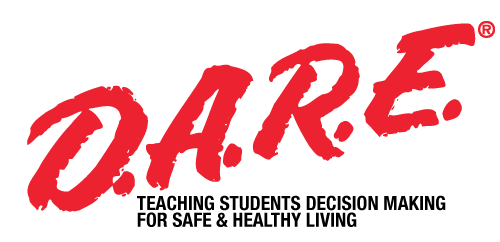The Drug Abuse Resistance Education Program, or D.A.R.E., was put in place in 1983 by the LAPD (Los Angeles Police Department, not Los Altos) and Los Angeles public schools. D.A.R.E was created with the intention to inform kids at school the dangers of trying new drugs and the lifelong consequences of addiction. Officers would go to schools, make presentations to students, and answer any questions that they had. Their intention was to bolster the confidence of students in order to allow them to decline when they were offered an opportunity to take drugs. I'm sure you guys remember the presentation we went through at Egan back in the day...
DARE sounds good on paper, and that's exactly how it gained its popularity. Politicians who supported the program experienced increasing amounts of support, and soon D.A.R.E was getting bipartisan praise from both parties. Reagan went on to announce a "national D.A.R.E day", which continued annually well into Obama's presidency.
 DARE was in 85% of school districts, but the effects of the program weren't being seen. In 1991, an early study conducted by University of Illinois concluded that, "the effectiveness of DARE in altering students' drug use behavior has yet to be established. And this finding was again reflected in the findings of a 1994 Research Triangle Institute study that gathered all known information on D.A.R.E and all the existing research on the program. It concluded that D.A.R.E had no known impact on teenage drug use.
DARE was in 85% of school districts, but the effects of the program weren't being seen. In 1991, an early study conducted by University of Illinois concluded that, "the effectiveness of DARE in altering students' drug use behavior has yet to be established. And this finding was again reflected in the findings of a 1994 Research Triangle Institute study that gathered all known information on D.A.R.E and all the existing research on the program. It concluded that D.A.R.E had no known impact on teenage drug use. In the later 2000s, DARE was given an ultimatum: change or die. D.A.R.E . opted for the former, introducing a new curriculum creatively titled "Keepin' it REAL". DARE transitioned from an anti-drug stance to a program that promotes honesty and safety rather than abstinence, a sentiment which is apparent in its IRS filings, where the program states its purpose is to "teach students good decision making skills to help them lead safe and healthy lives." rather than its 2009 position, where the program felt that it was meant "to implement and support drug abuse resistance education and crime prevention programs in the U.S.A.". DARE is a program that was unsuccessful in the past, and it's current success rate with the new curriculum is unknown.
I found this really interesting in the current climate of legalization and the opioid crisis, when drug use is seemingly at an all time high. I think that it is important to promote change and honesty instead of abstinence. I also think it reflects a growing change in mentality amongst many Americans.
ReplyDelete